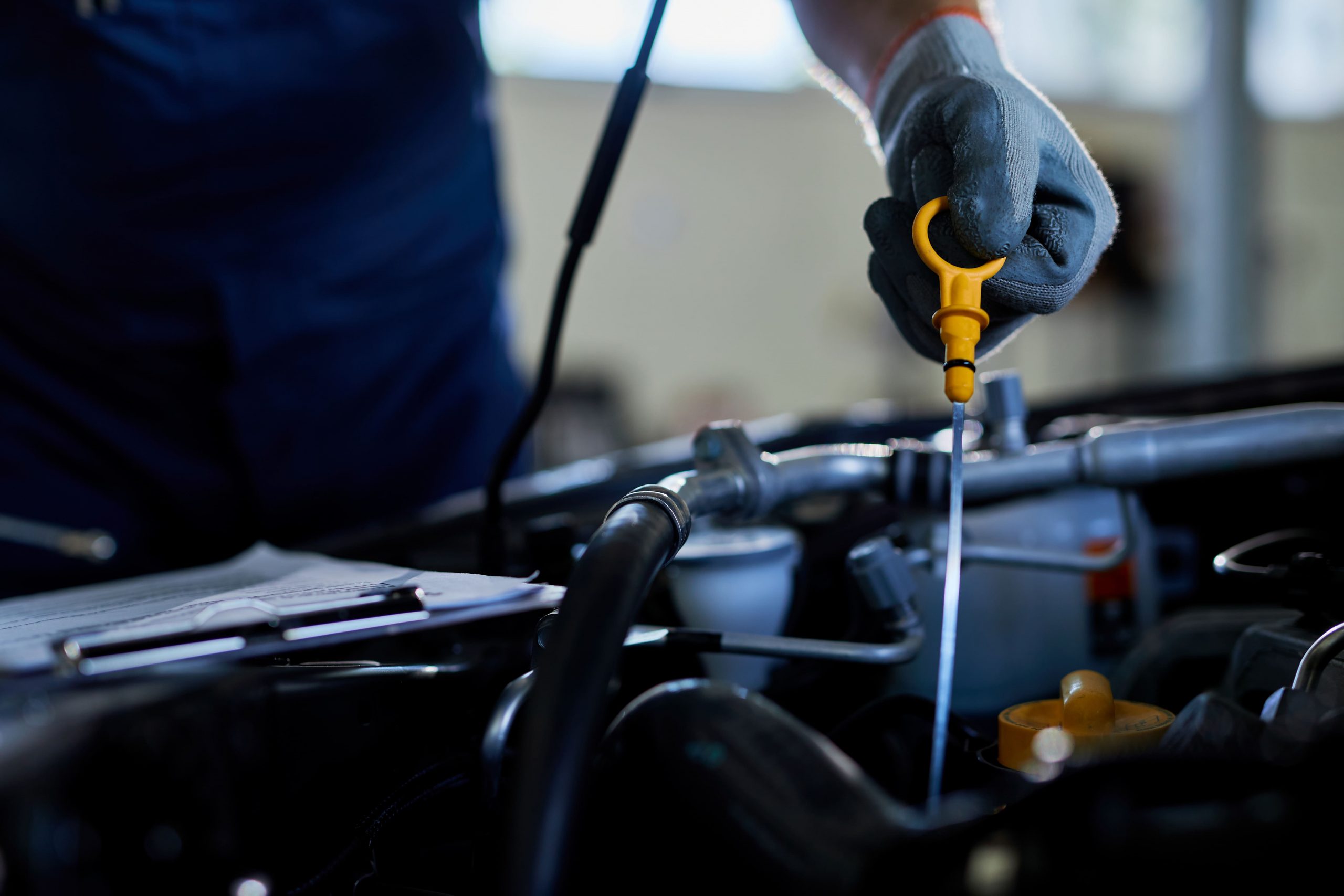Blog
The Importance of Regular Oil Changes and Consequences of Neglect

As a responsible car owner, the significance of routine maintenance, particularly the importance of Regular Oil Changes, cannot be overstated. Engine oil is the lifeblood of your vehicle and it is responsible for the smooth and harmonious functioning of all moving parts. Regular oil changes play a crucial role in ensuring the optimal performance and longevity of your vehicle. It also minimizes potential consequences that may unfold if one chooses to neglect this fundamental aspect of automotive care.
The Significance of Regular Oil Changes
Engine oil performs several crucial functions, including lubrication, cooling, cleaning, and sealing. Over time, however, the heat, contaminants, and the breakdown of additives take a toll on this essential fluid. The importance of Regular Oil Changes is the key to maintaining the effectiveness of engine oil in performing these vital functions.
Lubrication:
Engine oil serves as a protective layer between the countless metal components moving at high speeds within the engine. Without proper lubrication, these parts would generate excess friction, leading to premature failure. Regular oil changes ensure that the engine stays adequately lubricated, preventing accelerated wear and tear.
Cooling:
The engine generates a substantial amount of heat during the conversion of fuel into power. Engine oil plays a crucial role in dissipating this heat, preventing overheating, and ensuring the engine operates within safe temperature ranges.
Cleaning:
As engine components move and interact, tiny metal shavings, dirt, and debris can accumulate. Engine oil acts as a cleaning agent, carrying away these particles and preventing blockages or damage to essential components.
Sealing:
Engine oil creates a barrier between various engine components, preventing leaks and maintaining proper compression within the cylinders. This seal ensures efficient combustion and prevents the escape of gases.
The Importance of Adhering to Manufacturer Recommendations
Following the vehicle manufacturer’s recommended oil change intervals is not merely a suggestion; it is a foundational element of proper engine maintenance. These guidelines, based on extensive testing, are tailored to your specific vehicle’s needs. Adhering to these intervals offers several benefits:
Optimal Performance:
Fresh, clean oil ensures that all engine moving parts function smoothly, leading to better overall performance, smoother acceleration, and improved fuel efficiency.
Engine Longevity:
Regular oil changes provide the protection needed to prevent unnecessary wear and extend the life of your engine.
Prevention of Damage:
Timely oil changes prevent the buildup of sludge and deposits that can clog important engine components, avoiding potential damage.
Optimized Fuel Efficiency:
Clean engine oil reduces friction, helping the engine operate more efficiently and ultimately saving you money on fuel.
Warranty Compliance:
For newer vehicles under warranty, adhering to recommended maintenance schedules, including oil changes, is often a requirement to keep the warranty valid.
Consequences of Neglecting Regular Oil Changes
Despite the clear benefits of regular oil changes, neglecting this fundamental maintenance task can lead to a cascade of problems that compromise your vehicle’s performance, efficiency, and safety. Here are some potential consequences:
Increased Friction and Wear:
Dirty or insufficient oil cannot lubricate the engine correctly, leading to excess friction, wear, and tear, potentially causing premature engine failure.
Sludge Formation:
Contaminated oil can lead to the formation of engine sludge, a thick, gooey substance that can clog vital oil passages, preventing proper lubrication and cooling.
Reduced Engine Efficiency:
Dirty and deteriorated oil compromises the engine’s ability to cool and clean its components, leading to decreased efficiency, reduced power output, and increased fuel consumption.
Overheating:
Inefficient oil cannot effectively dissipate heat, leading to engine overheating and potential damage to various components.
Increased Emissions:
Dirty oil can contribute to higher emissions of pollutants, harming the environment and potentially causing your vehicle to fail emissions tests.
Expensive Repairs:
Neglecting regular oil changes can lead to significant engine damage, requiring extensive and costly repairs or even engine replacement.
Recognizing Signs of Neglected Oil Changes
Your vehicle communicates with you through various signs and signals, indicating when it’s time to address the consequences of neglected oil changes. Common indicators include:
Engine Noises:
Unusual knocking, tapping, or ticking sounds may signal insufficient lubrication, indicating potential damage.
Oil Warning Light:
The dashboard’s oil pressure light may illuminate, signalling that your engine might not be receiving adequate lubrication.
Dark and Dirty Oil:
Checking the oil level and appearance using the dipstick can reveal dark, gritty, or debris-laden oil, indicating that an oil change is overdue.
Decreased Performance:
Sluggish acceleration, reduced power, and poor fuel efficiency may stem from neglected oil changes.
Overheating:
An engine temperature gauge climbing into the red zone could be due to inadequate lubrication and heat dissipation caused by deteriorated oil.
Exhaust Smoke:
Excessive smoke, especially if bluish in colour, could indicate oil burning in the combustion process, revealing internal issues.
Preventive Measures
To avoid the pitfalls of neglected oil changes, follow these preventive measures:
Follow Manufacturer Recommendations:
Adhere to your vehicle manufacturer’s recommended oil change intervals tailored to your specific vehicle’s needs.
Set Reminders:
Use phone reminders or the vehicle’s onboard maintenance reminder system to stay on track with routine maintenance tasks.
Regularly Check Oil Levels:
Periodically check oil levels using the dipstick to detect potential issues such as leaks or excessive consumption.
Monitor Oil Quality:
Assess oil colour and consistency, opting for an oil change if it appears dark, gritty, or contains debris.
Consider Your Driving Habits:
Adapt oil change frequency based on driving habits, especially if you engage in stop-and-go driving or towing heavy loads.
Use Quality Oil and Filters:
Invest in high-quality synthetic oil and filters to contribute to your engine’s longevity.
Consult a Professional:
If unsure about maintenance needs or suspect any issues, consult a professional mechanic for expert advice and timely intervention. These are the main benefits that indicates the importance of regular oil changes.
Pal Auto Garage is your go-to place for top-quality car garage in UAE. We use the latest technology to diagnose and fix car issues, making sure your vehicle runs smoothly with added power. The experienced team at Pal Auto Garage provides the best in repairs, excellent customer service, and timely delivery. Enjoy the road with confidence and excitement!
Recent Posts

When it comes to luxury vehicles, understanding the fundamental components ...
Read more
Tesla has revolutionized the automobile industry with its cutting-edge elec...
Read more
When it comes to selling your car, every aspect matters. While many car own...
Read more
As a luxury car owner in the UAE, you understand the importance of maintain...
Read more
Owning a Tesla is a unique experience, offering a standout luxury drive, th...
Read more


